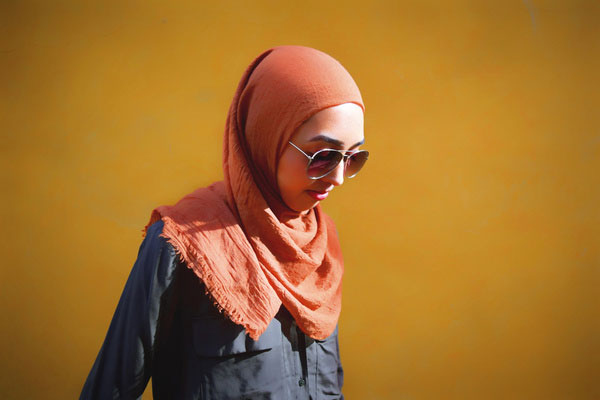
The Hijab is Radical Feminism
- By Kelly Frazier --
- 02 Aug 2017 --

The hijab is empowering.
In areas such as the United States where Islamophobia is growing rapidly, the hijab has become a highly politicized cloth.
For those who wear it, the hijab is an outward declaration of their religion and a promise to God.
For those who shame it, the hijab is a symbol of the oppression of women in a religion they are afraid of.
Consumerism and Capitalism are two of the defining features of our generation. The objectification of women is no longer just in magazines such as Playboy, but it is out on display in Hardy’s commercials, or fundraising car washes.
This comes as no surprise to the girls spending $50 on a makeup brush, nor to the mothers who tell their children their skirt is too short. In the sexual awakening spawned by second wave feminism, we’ve lost an understanding that the fight against the over-sexualizing of women and children, the fight against objectification, does not only come from short skirts and Slut Walks with Amber Rose, but from modesty, too.
Mona Haydar Wraps Her Hijab to the Beat: https://t.co/KyhCjqeRw2 #AboutHer pic.twitter.com/612u2AV8rt
— About Her (@AboutHerOFCL) July 28, 2017
The feminist fight against hijabis and all other women who decide to dress modestly for religious or non-religious reasons forces a fixation on women as bodies. As we teach our children that an uncovered shoulder doesn’t warrant their suspension from school, or that the length of a skirt does not justify sexual assault, we also need to teach our children and ourselves that modesty is not a protective barrier to avoid sexualization.
Modesty is a declaration and a practice of being more than just a body. Modesty is empowering.
The call to wear the hijab is a call from God so the women who wear it will not be sexualized by men. The call to wear the hijab is because God believes that women are worth more than their sexual beauty. The call to wear the hijab is so that these women are loved for their wisdom, their kindness, and their faithfulness.
Not only is modesty itself empowering, but the act of being modest as a promise to one’s God is inspiring. Over 90% of the Muslin population wears the hijab by choice. If oppression is the unjust or cruel exercise of authority or power, then it is not Muslim men who are oppressing hijabi women, it is those who attack and belittle the women for wearing them.
In a TEDx talk, Yasmine Abo-Shadi says “My hijab is …my humility, my respectfulness of those around me, that all ties back into my hijab.” Hijabi women are the epitome of what choice feminism should look like. The hijab speaks to a decision of care and a commitment to modesty that allows those who wear it to decide who is allowed to see their hair, who is allowed to share in their beauty, and declares that they are worth infinitely more than their outward appearance.


















